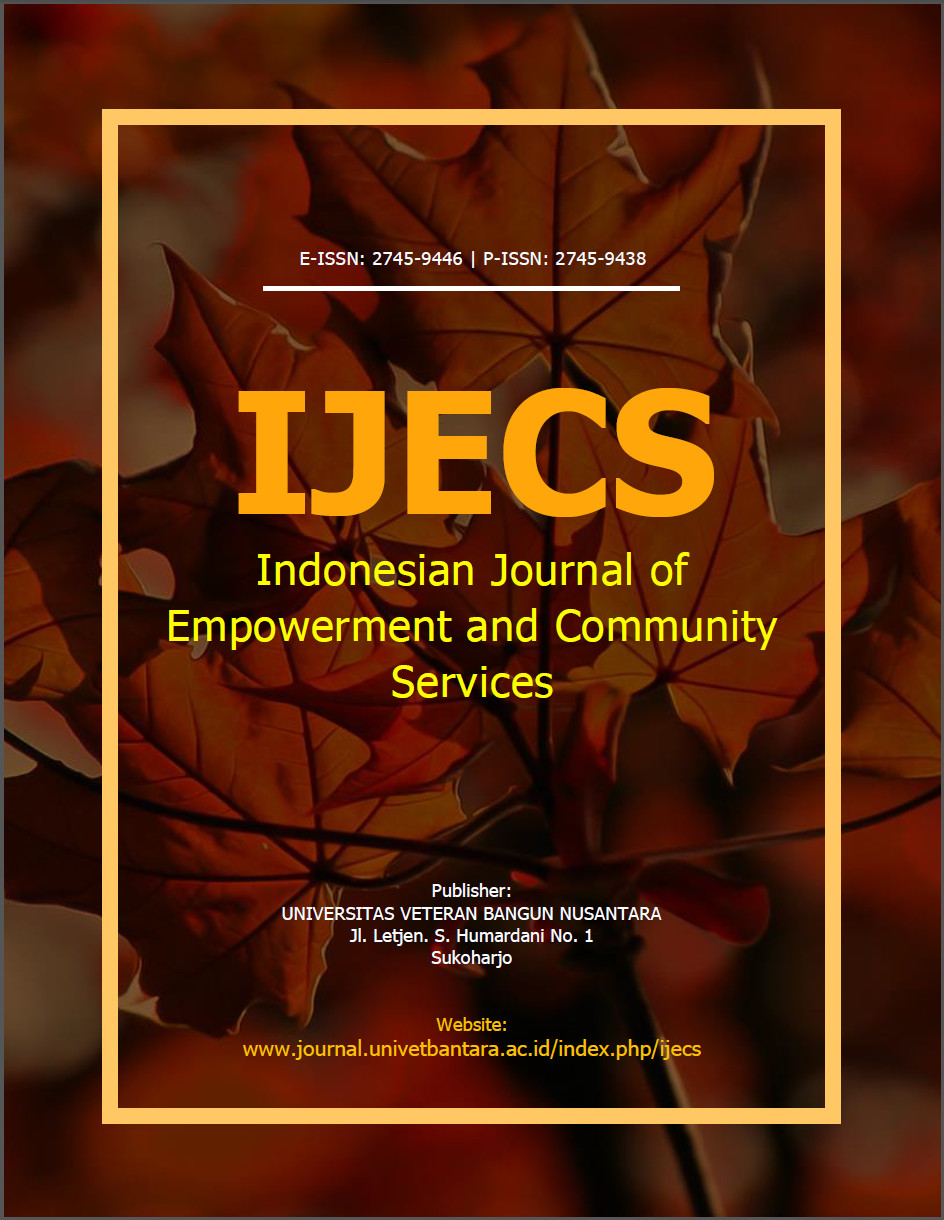Entrepreneurship Training as well as Environmental Conservation for Junior High School Students through Ecoprint
DOI:
https://doi.org/10.32585/ijecs.v6i2.6859Abstract
One of the P5 projects on the theme of entrepreneurship is Ecoprint, which is a natural batik art using plant parts as the basic material, and if done seriously, this batik art can generate income for its maker. The purpose of this service is to provide understanding through ecoprint training to students of SMP Muhammadiyah 1 Kartasura because of its relevance to the P5 subject on the theme of entrepreneurship. The method of this service is through lectures and direct practice of making ecoprints using both the hitting technique and the steaming technique. The results of the service show that there is an increase in the understanding of SMP Muhammadiyah 1 Kartasura students towards ecoprints, as well as the students' enthusiasm in making ecoprints. It can be concluded that this service activity went smoothly and the results of this service are expected to provide students with skills in developing an entrepreneurial spirit in the future.
Keywords: Ecoprint, Entrepreneurship, P5, Training
Downloads
Downloads
Published
How to Cite
Issue
Section
License
Copyright (c) 2025 Ratna Dewi, Tri Wiharti, Fadhillah Marta, Intan Oktaviani

This work is licensed under a Creative Commons Attribution-ShareAlike 4.0 International License.
Authors who publish with the IJECS: Indonesian Journal of Empowerment and Community Services agree to the following terms:
- Authors retain copyright and grant the journal the right of first publication with the work simultaneously licensed under a Creative Commons Attribution License (CC BY-SA 4.0) that allows others to share the work with an acknowledgment of the work's authorship and initial publication in this journal.
- Authors are able to enter into separate, additional contractual arrangements for the non-exclusive distribution of the journal's published version of the work (e.g., post it to an institutional repository or publish it in a book), with an acknowledgment of its initial publication in this journal.
- Authors are permitted and encouraged to post their work online (e.g., in institutional repositories or on their website) prior to and during the submission process, as it can lead to productive exchanges, as well as earlier and greater citation of published work.





